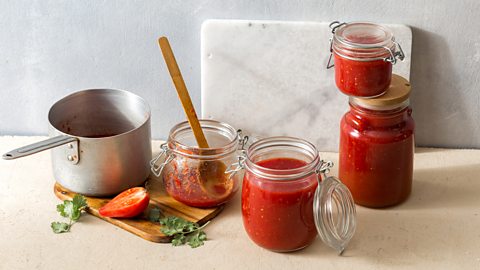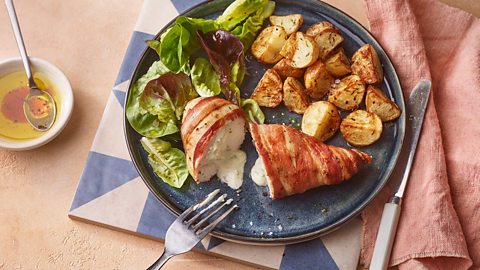Which foods cause bloating (and can any ease it)?
One in five adults experience bloating at some point each week. Could diet be the key to beating it?
By Laura Tilt
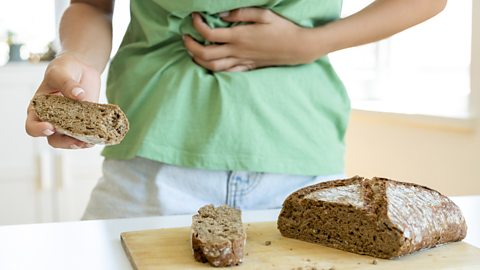
Bloating – a sensation that your stomach is uncomfortably full, tight, or filled with gas – is a common experience. According to a recent study, almost 20% of us experience bloating at least once a week.
What causes bloating?
Bloating isn’t a specific symptom with a single cause. It can, though, be a result of a build-up of gas and food in your stomach.
As you eat and drink throughout the day, your stomach expands to accommodate food and liquids, so your tummy won’t look the same by the evening as it does in the morning.
Some foods (which we’ll come back to) naturally produce gas when they’re broken down. This can contribute to feeling bloated, but is a normal part of healthy digestion. This type of bloating is temporary and usually subsides as food is digested and gas is passed.
However, bloating can also be a symptom of an underlying condition, such as coeliac disease, irritable bowel syndrome (IBS), or food intolerances like lactose intolerance.
This is why it’s important to speak with your GP if you experience bloating that does not go away, causes severe discomfort or is combined with symptoms like weight loss, tummy pain, or changes in your poo. Your GP will ask some questions about your symptoms and run some blood tests to check for potential causes.
Even without an underlying gut condition, it’s normal to experience bloating occasionally. Research suggests the factors that increase the chances of frequent bloating include:
Being female: Women are twice as likely as men to report bloating, possibly due to the influence of female sex hormones on gut motility and sensitivity.
Age: Younger adults tend to experience bloating more often than older adults.
Having a functional bowel condition: Conditions like irritable bowel syndrome (IBS) and functional abdominal pain are linked with more frequent bloating.
Constipation: When stool builds up in the gut, it can lead to increased gas and bloating.
If you are experiencing bloating, making changes to your diet may help. Some foods are more likely to lead to bloating, whereas others could potentially ease it.
Foods that can lead to bloating
Onion and garlic
Onion and garlic are high in fructans, a type of FODMAP (a group of short-chain carbohydrates) that isn’t well absorbed in the gut. When these carbohydrates reach the large intestine, they’re fermented by gut bacteria, producing gas that can trigger bloating in people with IBS.
If you think (or know) onion and garlic are a trigger for you, try using chives or the green part of spring onions instead of onion. Swap fresh or dried garlic for garlic-infused oil, as the FODMAPs don’t leach into the oil.
(A low FODMAP diet – where high FODMAP foods are swapped for low FODMAP alternatives – can improve gas bloating and pain for those with IBS. If you think this might help, speak to your doctor for guidance and a referral to a dietitian.)
Bread and other wheat foods
Wheat is another high-fructan food that can trigger bloating in people with IBS, especially when consumed in large amounts across multiple meals (for instance, toast for breakfast, sandwiches for lunch and pasta for dinner).
If you have IBS, try limiting wheat to one meal per day and opting for rice, potatoes, quinoa or oats at other meals if you suspect it’s a bloating trigger.
In my experience, sourdough bread often results in fewer gut discomforts than yeast-risen bread and there’s evidence that fructan FODMAPs are reduced by lactic acid bacteria during the sourdough process.
Sourdough starter
If switching your bread to sourdough helps with your bloating, try making your own
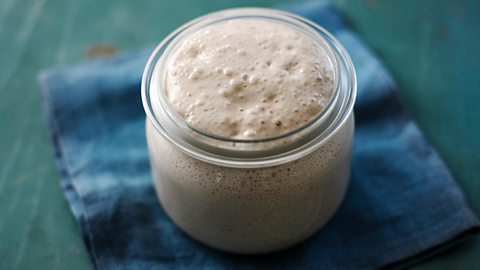
If you bloat when eating wheat, it’s also important to rule out the possibility of coeliac disease. This is a condition where the body’s immune system attacks the small intestine in response to eating gluten (a protein in wheat, rye and barley) which can lead to bloating and gas. Your GP can run a blood test for coeliac disease, but you must continue eating gluten for six weeks before the test to ensure accurate results, so don’t cut out wheat before this is done.
Pulses (beans, peas and lentils)
Pulses are often blamed for bloating because they contain raffinose, another fermentable carbohydrate that gut bacteria readily breaks down, producing gas. But despite their reputation for being gassy, there’s plenty of reasons to keep pulses in your diet – they’re rich in many nutrients including protein, fibre, iron and zinc, plus their indigestible fibres nourish beneficial gut bacteria.
There’s also some evidence that eating beans regularly may help your body adapt, reducing gassiness over time.
Go with smaller portions (try two tablespoons per meal) as they’re usually better tolerated that way. Buying canned beans and lentils and rinsing them well before eating can help too, as the raffinose leaches into the canning water. If you’re cooking dried pulses, soak and rinse well before cooking.
Fried lentils, mango chutney and eggs
Tinned lentils may create less gas than dried, as the raffinose leaches into the liquid they’re stored in
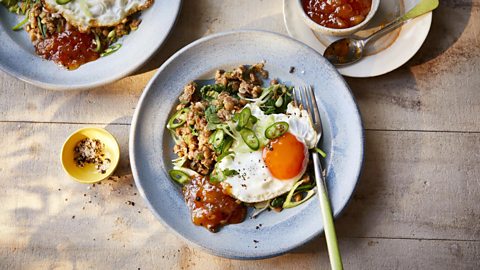
Milk, yoghurt and ice cream
Milk, yoghurt and ice cream are high in milk sugar lactose. Lactose needs an enzyme called lactase to be properly digested, which is made in the small intestine. If your body doesn’t produce enough lactase (which can happen for lots of reasons), undigested lactose reaches the large intestine, where it can cause wind, bloating, pain and loose stools. This is known as lactose intolerance and affects around 8% of the UK population.
If you’re affected, there are alternative options. Try lactose-free milk and yoghurt and opt for hard cheese, which is low in lactose. A trial period of two to four weeks of using low lactose foods can help determine if lactose is a problem for you.
Low FODMAP banana and oat pancakes
You could use soya yoghurt here to cut out the lactose

Chewing gum and fizzy drinks
One of the ways that gas can enter the gut is through swallowing air. Chewing gum and drinking fizzy drinks can lead to swallowing more air, causing fullness, bloating and burping. Swap fizzy drinks for still alternatives and try avoiding gum to see if symptoms improve.
Foods that may ease bloating
Kefir
Kefir is a fermented milk drink similar to yoghurt but richer in live, beneficial microbes. Various studies have found that kefir may have a positive impact on the gut microbiome and can reduce gas in people with lactose intolerance compared to milk.
If you’re new to kefir, start with a small amount (50-100ml, perhaps) and if you tolerate it well, gradually increase to a full cup. You can try adding it to cereal, yoghurt, or smoothies.
Yoghurt bark
You can use thick kefir in this yoghurt bark

Kiwi
If you’re feeling bloated due to constipation, kiwi fruit might help. It’s rich in a type of fibre which can hold lots of water, so softens stools making them easier to pass. They also contain the enzyme actinidin which may help with gut motility. Some studies have found that eating two kiwis a day can help relieve constipation.
Linseeds (Flaxseeds)
Linseeds (also known as flaxseeds) are small seeds from the flax plant, which can be consumed whole or ground. They’re rich in fibre which isn’t particularly gas forming, making them a good choice if you want to increase your fibre intake without bloating.
Some evidence suggests that working up to two tablespoons of linseeds a day may help relieve bloating and constipation in people with IBS.
Start with half a tablespoon and gradually increase the portion size over a few weeks. Linseeds work well in overnight oats or used to top yoghurt. Make sure you drink plenty of fluid when increasing fibre intake, as water helps fibre to soften stools.
Flaxseed makes a great addition to smoothies
What about peppermint tea?
Peppermint has traditionally been used as a digestive aid, as it can relax smooth muscle (like that found in the gut) and relieve cramping. Peppermint oil (typically consumed in capsule form) has been shown to help ease symptoms of bloating and pain in people with IBS.
Although peppermint tea is often recommended to ease bloating, there haven’t been any human trials looking at whether it’s effective. Based on my clinical experience, some people find it soothing when they feel bloated.
Disclaimer: This article is not a substitute for proper medical diagnosis or dietary advice given by your doctor and dietitian. Please contact your GP for tailored support and advice.
Originally published March 2025
Want more? Visit BBC Food on Instagram, Facebook and Pinterest or watch the latest Food TV programmes on BBC iPlayer.
